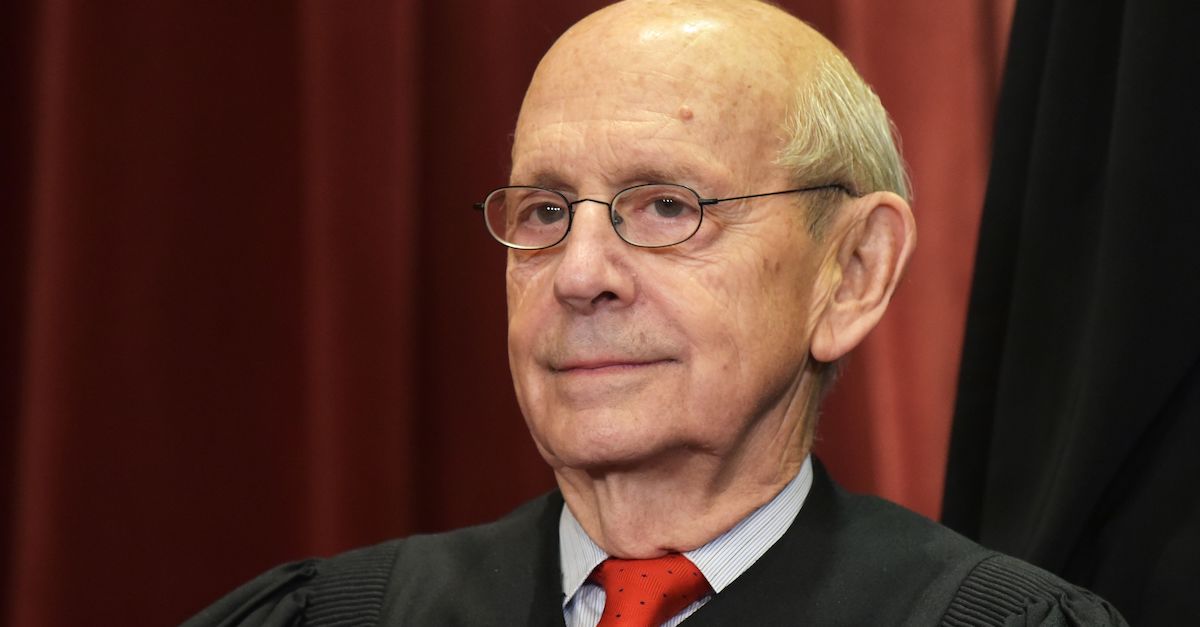
Justice Stephen Breyer, SCOTUS’s ever-agitated octogenarian, made a claim about the Court last night during a speech at Harvard: it’s not conservative, and everyone should stop using political terms to describe justices. Breyer gave a two-hour lecture at Harvard Law School Tuesday, at an event titled “The Scalia Lecture: The Authority of the Court and the Peril of Politics.”
During the speech, Breyer chastised journalists and politicians for referring to justices by the presidents who appointed them, as well as for describing them as “liberal” or “conservative.” Such labels, according to Breyer, “reinforce the thought, likely already present in the reader’s mind, that Supreme Court justices are primarily political officials or ‘junior league’ politicians themselves rather than jurists.”
A public perception that justices are beholden to political (rather than jurisprudential) beliefs is incorrect, Breyer insisted. As evidence of the Court’s apolitical nature, Breyer pointed to its refusal to take up the many lawsuits aimed at overturning the results of the 202o presidential election. According to Breyer, the Court’s decision not to take up Trump’s cause, even with its perceived 6-3 conservative majority, supports a conclusion that even its ruling in Bush v. Gore hadn’t been politically motivated. “Judicial philosophy is not a code word for ‘politics,'” the justice lectured.
Breyer raised a litany of examples of SCOTUS rulings, making the point that both liberal and conservative causes have had their wins before the high court.
Breyer pulled out all the stops to make his case about the independence of the Court. He joked about his friendship with the late Justice Antonin Scalia, he stayed silent on his own potential plans to retire, and he even lamented dissents as “failures.”
Perhaps Breyer’s boldest move was directly speaking out against expanding the Court — a suggestion that has gained traction with many progressives after Republicans denied then-Supreme Court nominee Merrick Garland a hearing in an election year. Donald Trump went on to appoint Neil Gorsuch and Brett Kavanaugh to the Supreme Court, the latter after Anthony Kennedy announced his retirement. But the court-packing conversation reached new heights after Trump nominated — and the Mitch McConnell-led Senate confirmed — Amy Coney Barrett as the newest justice in an election year. Republicans wasted no time after Justice Ruth Bader Ginsburg’s death to make that happen. Still, Breyer warned that expanding the Court beyond nine members would threaten public trust in the institution that has been “gradually built” over centuries.
“Structural alteration motivated by the perception of political influence can only feed that perception, further eroding that trust,” he warned.
Justice Breyer is the oldest justice currently on the Court. He was appointed by Bill Clinton in 1994.
[Image via Mandel Ngan/AFP/Getty Images]